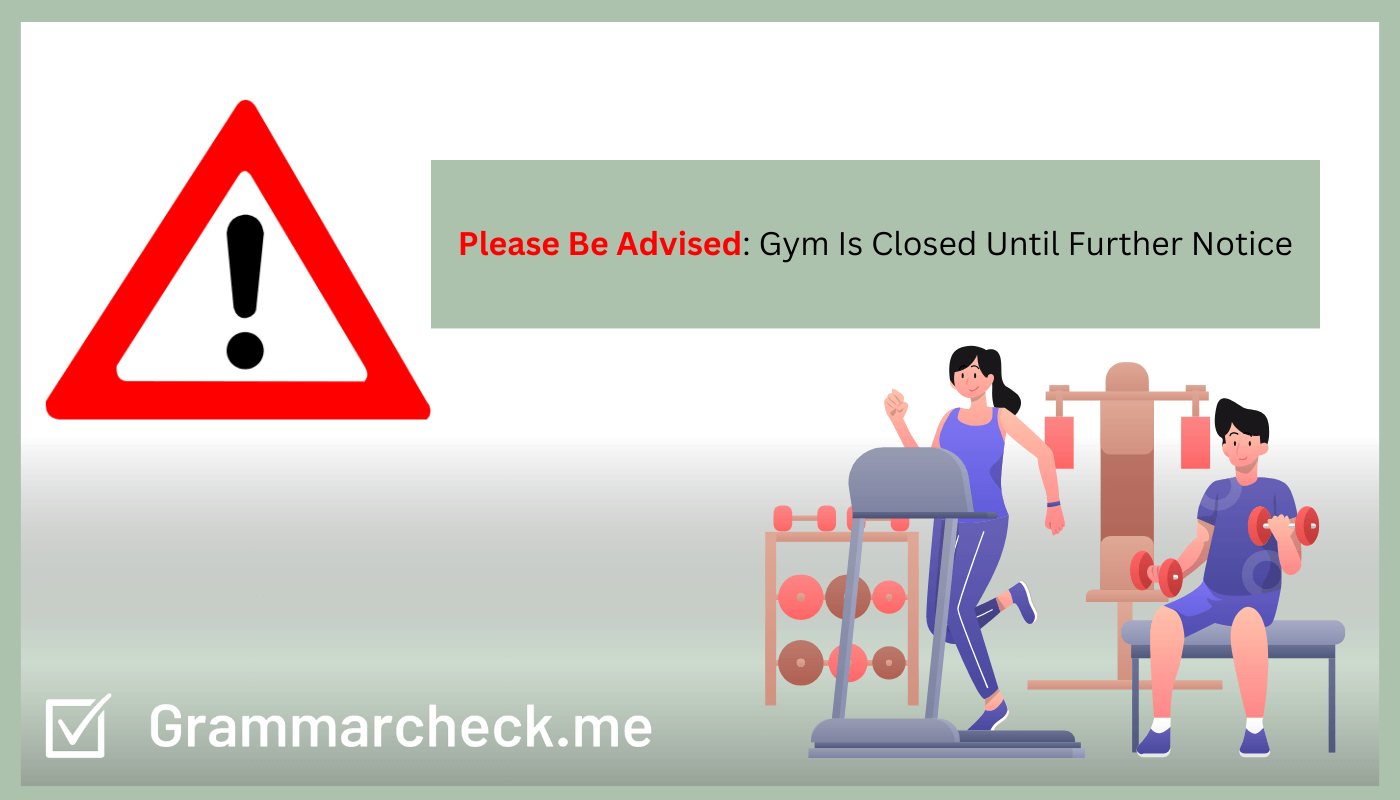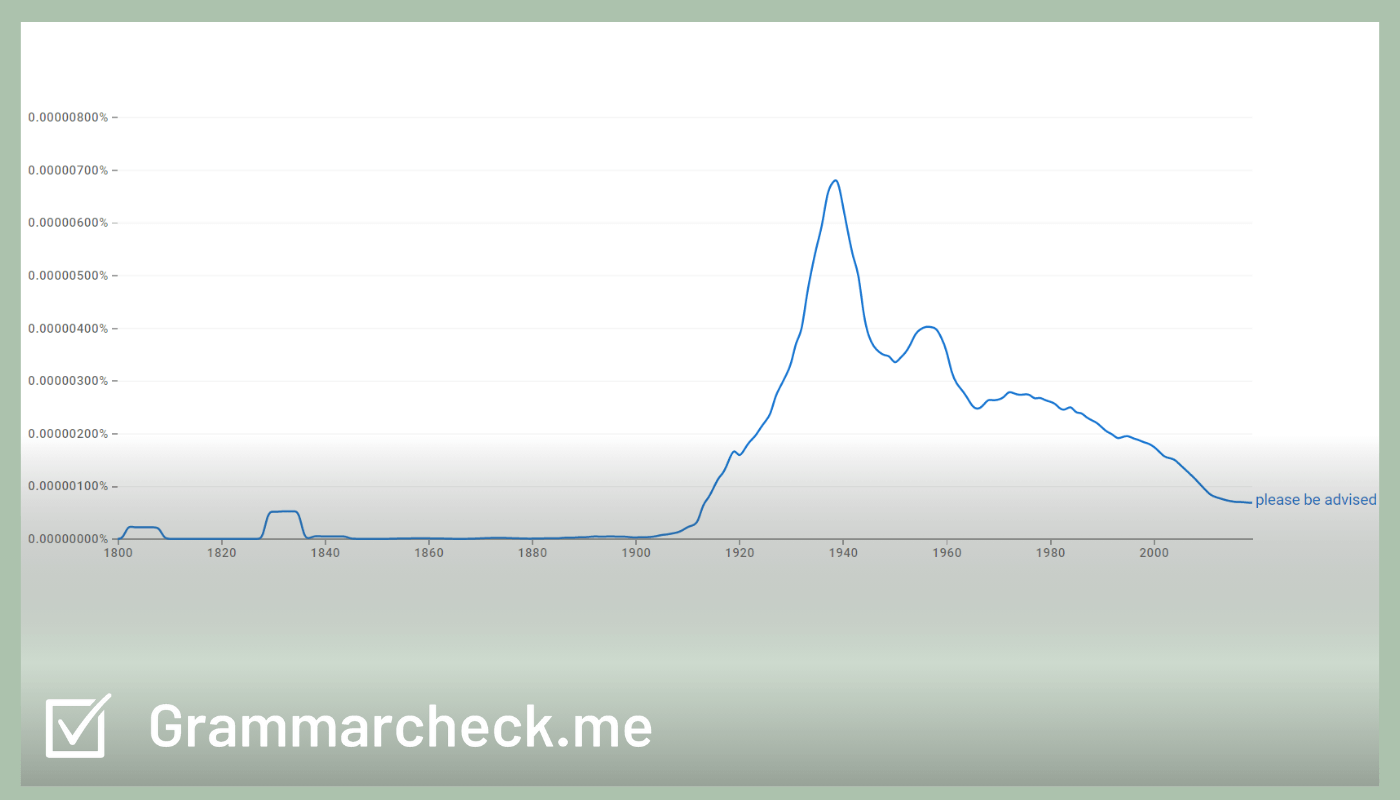The phrase “please be advised” is used to provide notice of relevant information. It is most frequently used in formal settings to convey very important information to the audience.
This expression is commonly used on signs (i.e. wet floor signs), government warning, and other formal communications. There are a wide range of settings which it is considered grammatically correct to use the adage “please be advised”.
In this post, we’ll further explain the meaning of “please be advised”, the correct writing context to use it, common synonyms, and much more!

What Is The Meaning Of “Please Be Advised”?
The phrase “Please be advised” is a formal way of alerting someone to important information. This formal phrase is frequently used in the English language to provide someone with a warning or notice about a particular situation.
The expression “please be advised” functions as a polite precursor to important announcements. When you see a sign with this expression you should be aware that the information may be important to your health or safety & requires immediate attention.
You will typically see this phrase used in various sorts of formal emails as well (i.e. customer service). You can also check out our post on how to end an email to learn more about formal emails.
Which Contexts Is The Expression “Please Be Advised” Used?
The expression “please be advised” is typically used in formal settings to ensure compliance with an upcoming message. Here is a list of a few contexts which the saying “please be advised” is frequently used.
- Formal business communications (emails or letters)
- Legal documents
- Academic writing
- Government announcements
- Safety signage
Generally the impersonal phrase “please be advised” is used in contexts where clarity, formality, and a heightened sense of attention are warranted. And just like we learned in our analysis of the formal phrase “per your request”, writers need to always pay attention to context when deciding on word choice.
How Do You Use The Phrase “Please Be Advised” In A Sentence?
Below are 5 example sentences that contain the phrase “please be advised”.
- Please be advised that due to inclement weather conditions, all flights departing from the airport are delayed until further notice.
- Please be advised that the annual shareholders’ meeting has been rescheduled to next week.
- Please be advised that there is a mandatory safety drill scheduled for tomorrow morning at 9 AM.
- Please be advised that your account balance is currently below the minimum required for this subscription, and it will be suspended unless you make a payment by the end of the day.
- Please be advised that the city council has approved a new ordinance regarding parking regulations, which will come into effect starting next month.
Just like we saw in our analysis of the expression “may the odds be ever in your favor origin“, writers need to pay close attention to the context in order perfect their word choice.
What Are Synonyms For “Please Be Advised”?
Here is a list of synonyms for the expression “please be advised”.
- Kindly note
- Be informed
- Take notice
- Be aware
- Allow me to inform you
- Let it be known
- I would like to inform you
Popularity Analysis
Google’s N-Gram data, shown in the graphic below, demonstrates that the adage “please be advised” has declined in popularity since the 1940s. This is most likely because formal writing was far more common in the early 1900s than it is today. With the rise of social media & texting, casual communication has become far more common in our daily communication. However, just as we learned in our post about the saying “whether or not” the popularity of vocab can change significantly overtime.

What Is The Opposite Of “Please Be Advised”?
Phrases that have the opposite meaning of “please be advised” typically convey informality or a lack of seriousness regarding the information being presented. Some opposite phrases include:
- “In case you’re interested”
- “No need to worry, but…”
- “This is not a big deal, but…”
- “I thought you might like to know”
- “Just a heads-up”
Other informal phrases like “cut of your jib” follow similar rules in terms of context. Writers need to understand the appropriate time and situation to use specific vocabulary terms.
Frequently Asked Questions
Yes, “Please be advised” typically precedes important information, serving as a formal and courteous way to alert the recipient to the significance of the forthcoming message.
Different professions and industries use “Please be advised” to communicate critical information or warnings in various contexts. For example, in the legal profession, it may be used in formal notices or legal documents. In aviation, it’s used for safety announcements. Its usage can vary, but it consistently conveys the importance of the message to the recipient.
The Bottom Line
By now you should very knowledgeable on the phrase “please be advised”. This is a formal phrase that is used to communicate the importance of information that is being provided. This expression is most commonly used on signage and different forms of government warnings. However, there are an endless amount of contexts this saying can be used. Don’t hesitate to use our Grammar checking review software if you need help with your writing!
